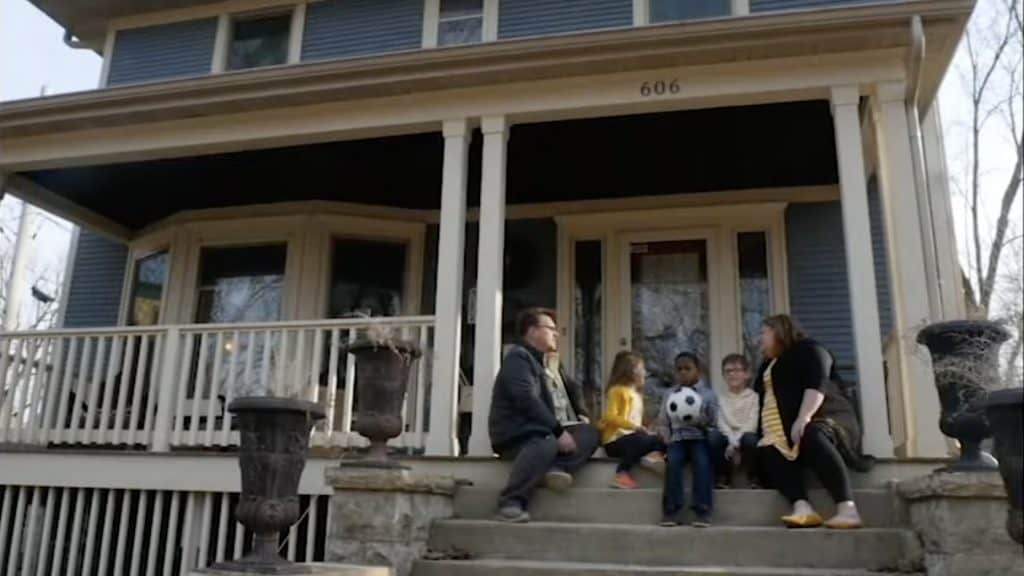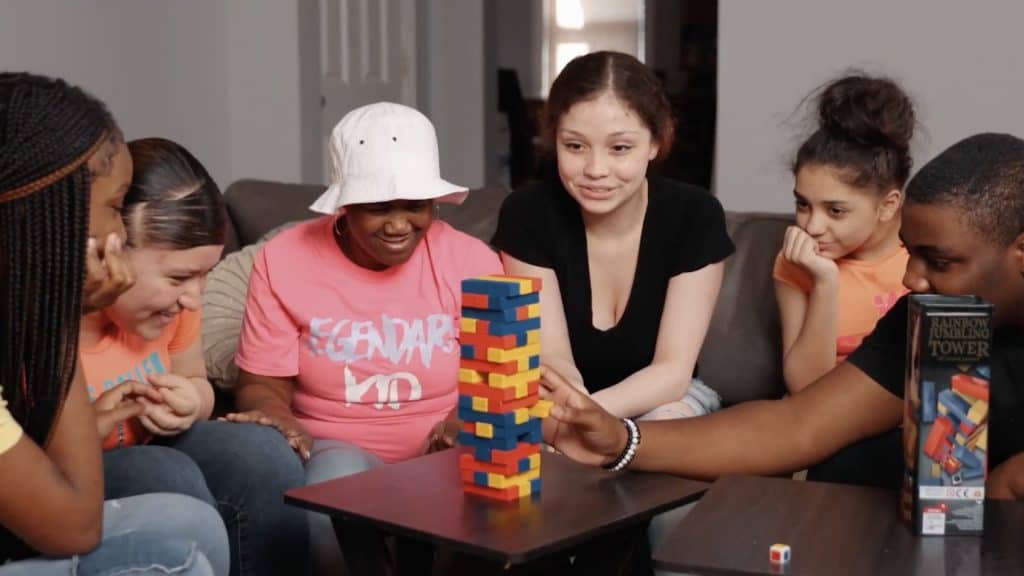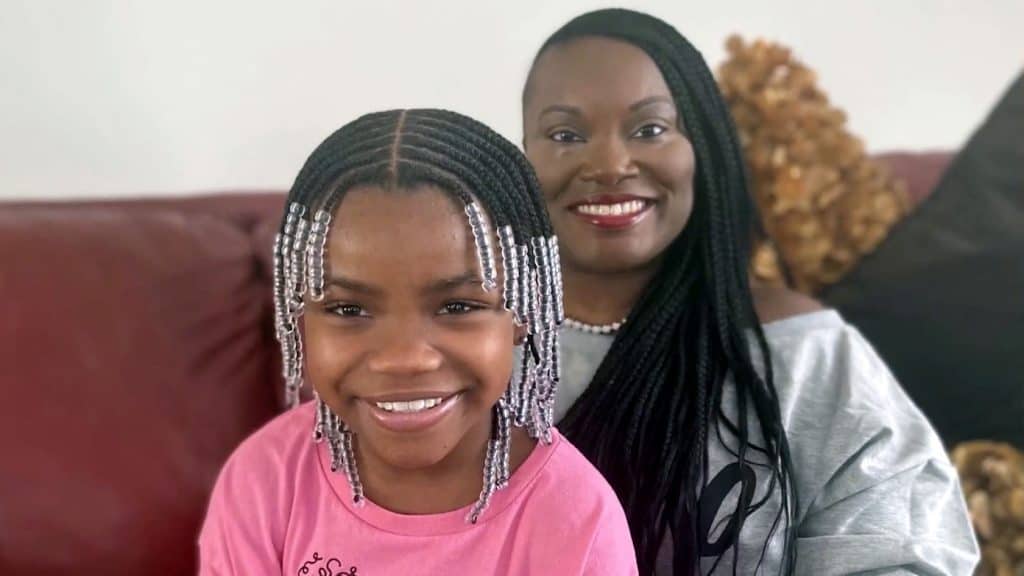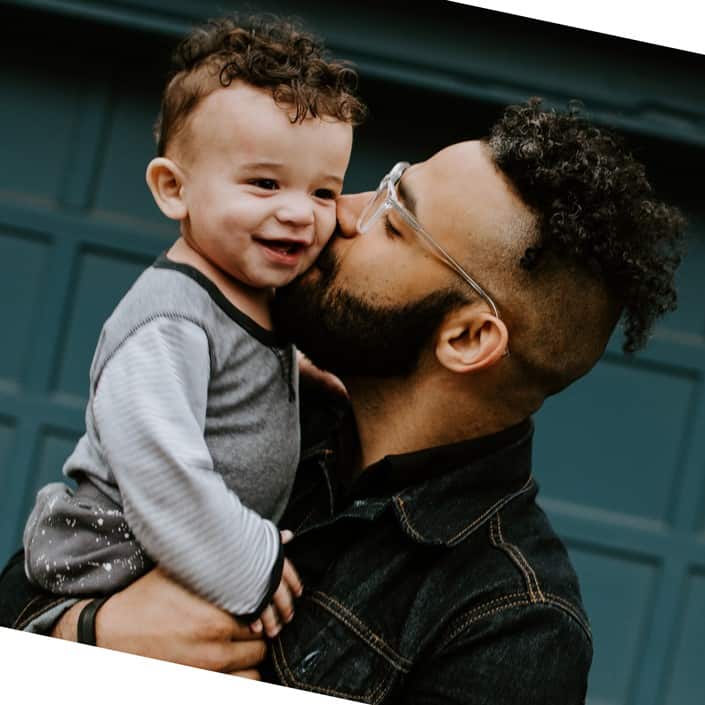Foster Care
Help children who have experienced trauma feel safe, build a future and return to family. Help a child and family heal. Be a foster parent.
Every child needs and deserves to grow up safe and protected from abuse and neglect. There are times when, for various reasons, a child must be separated from his/her parents. The majority of children who enter foster care are able to return to their parents. Foster parents play a significant and meaningful role in making this happen. LCFS can help you become a licensed foster parent and provide support as you open your heart to children in need of a safe, loving home and be supportive to parents.
Caring foster parents offer children unconditional love and assume the challenges and the joys that come with parenting. At the same time, foster parents support the children’s parents in their efforts to have his/her child(ren) returned to them. Becoming a foster parent requires patience, unconditional love, and hard work. A supportive relationship with parents is essential to the well- being of the children who have come to live with them temporarily.
As a foster parent, your role includes:
- Providing care for children, giving them a safe, supportive, and nurturing home.
- Supporting family connections through visits and when appropriate attending events and other meetings together.
- Working with LCFS and the children’s parents to reunite the family. When this is not possible, a “forever” family is needed for the children.
- Helping the children cope with any trauma they have endured, including being separated from their family.
- Working with LCFS to ensure the children’s social, emotional, physical and educational needs are met.
- When issues or concerns arise, working with LCFS to have these issues addressed promptly.
 Foster parents can be married or single, can live in the city, suburbs or rural areas, and can be working or retired. LCFS is searching for welcoming homes and loving caregivers regardless of age, race, faith, gender, sexual orientation, gender expression, gender-identification or education level. If you are an Illinois resident and can answer yes to all of the following questions, you may be eligible to become an LCFS foster parent:
Foster parents can be married or single, can live in the city, suburbs or rural areas, and can be working or retired. LCFS is searching for welcoming homes and loving caregivers regardless of age, race, faith, gender, sexual orientation, gender expression, gender-identification or education level. If you are an Illinois resident and can answer yes to all of the following questions, you may be eligible to become an LCFS foster parent:
- Are you passionate about making a difference in a child’s life?
- Are you at least 21 years old?
- Are you willing to submit to a background check?
- Are you financially able to care for yourself and your own family?
- Are you in good health?
- Are you able to meet the needs of a child on a daily basis?
As an LCFS foster parent, you are a member of a team (you, LCFS staff, and parents); all working together to ensure that the needs of children are met timely. Foster parents are never alone in this role; you have a comprehensive support system. We stand alongside our foster parents to ensure they have the resources and support they need to meet the needs of the children for whom they care.
Our commitment to you is support, responsiveness, collaboration and resources as you not only care for the children but also team with the children’s parents to maintain their connections. It is important that foster children never feel torn between the two sides. When children observe their parents, foster parents, and LCFS team members working together toward their best interest, their outlook becomes more positive and allows them to be optimistic about their future.
- LCFS team to provide guidance and support.
- Health insurance for the children placed in your home.
- Therapy, counseling, academic counseling and special education services when needed.
- Training programs, support groups and newsletters geared to foster families.
- Monthly financial support for the foster children’s basic needs, including: food, clothing and housing costs.
- Funding for daycare, after-school care, and extracurricular activities including sports and art programs for eligible children in foster care.
Children, who enter foster care, are from all ethnic groups and range from birth to 21 years old. However, LCFS particularly needs families who are willing and able to provide caring, welcoming homes to:
- Adolescents/Teenagers
- Sibling groups
- Children with special medical needs (Specialized Foster Care)
- Children with mental-health and behavioral needs (Specialized Foster Care)
- Youth identifying as LGBTQ+
- Youth who are in foster care and involved with the criminal-justice system (Regenerations)

2,146
Children cared for in loving LCFS foster families last year
How do I become an LCFS foster parent?
- Call 800-363-LCFS or use our inquiry form to reach out and express your interest in being a foster parent.
- Attend either a local informational meeting (click here to view the calendar of events) or schedule an individualized one-on-one meeting to learn more.
- An LCFS licensing representative will schedule a time to visit you in your home.
- The licensing representative will meet with you and your family 3 to 4 times during the foster care licensing process.
- All the required paperwork will be provided by your licensing representative.
- This step includes fingerprinting for all adults in the home age 18 and over.
- All individuals in the home must also receive a physical examination by a doctor.
- All prospective foster parents must complete 39 total hours of PRIDE training.
- PRIDE classes are available at no cost.
- This training is the most important part of the process, because you will learn about caring for a child who has experienced trauma.
- Visit www.dcfstraining.org for a list of available trainings and dates.
- Your LCFS licensing representative will meet with you to determine your capabilities as foster parents to provide care to a child(ren) prior to licensure.
- Your LCFS licensing representative will conduct a final walkthrough of your home to confirm it meets all requirements for licensure.
- Once your foster care license is issued, you are then added to the list of available foster homes for a placement.
- An LCFS licensing representative will contact you to discuss any possible placements of a foster child(ren) with your family.
- LCFS will continue to guide and support you throughout your time as a foster parent.
Our Clients. Their Stories.
Be inspired by people telling their own stories of changing their lives for the better with the help of LCFS’s programs and services.

Sawyer Family's Story
“We’re fully devoted to reunification when it’s possible. When a child can be parented by their parents, we know that’s best for them.”

Nekessa's Family Story
“When I came here [Nekessa’s home], I started caring about school more, and because of her pushing me and supporting me throughout school, I was able to become the valedictorian of my 8th grade class.”

Lakeisha's Family Story
“Without meeting my parents, I wouldn’t be as successful as I am today, and foster care was one of the many gifts I have.”

365
Youth in LCFS foster care found their forever families with 241 able to return to their families last year
Get started today! Become an LCFS foster parent.
There is nothing like giving a child a second chance or working with a family member to resolve his/her personal issues and become a better parent. Being a foster parent may be challenging, but the rewards are enormous. If you come with optimism and realistic expectations, LCFS will support you with a team that guides you through the process and assists you in making a difference in the life of a child.
Click here to view a copy of LCFS’ Foster Parent Law Implementation Plan.
Frequently Asked Questions
There are times when a child must be separated from his/her parents due to abuse, neglect or significant family issues. When this occurs, the child is placed with a foster family. When possible, the child is reunited with his/her family. When that is not appropriate, steps are taken to identify a “forever” family for the child.
Here are just a few of the attributes we see in many of our foster families:
- Patience
- Acceptance
- Persistence
- Flexibility
- Calm in the midst of stress
- Ability to be a team player
- Good stress management skills
- A support system of friends, extended family, etc.
Specialized Foster Care provides children with a combination of the best elements of traditional foster care and individualized and intensive treatments designed for their unique needs. Each foster child’s emotional, behavioral, social and medical health needs are assessed and LCFS works to find an appropriate foster home to maximize the youth’s success and healing.
LCFS also provides additional specialized training and ongoing support to specialized foster families to ensure they are fully equipped to help with the child’s individual treatment and behavioral plan. Specialized foster parents are provided with an additional 12 hours of training per year on topics such as mental health and trauma disorders, which is above and beyond what is required for license renewal. A tailored training plan is mutually developed between an LCFS licensing representative and the foster parent, in order to provide the requisite tools to address the needs of the child.
To learn more about Specialized Foster Care, contact LCFS to speak to a foster care licensing representative.
Children are referred to Specialized Foster Care programs to address serious levels or emotional, behavioral and medical health needs.
The types of children in need of a specialized foster home include:
- Children/youth who have experienced severe and chronic trauma that has gone unaddressed.
- Children that are medically fragile or severely developmentally delayed.
- Youth who are ready for discharge from a residential treatment center, but need intensive services and supports in a family setting.
- Youth whose current behaviors interferes with their interpersonal relationships and social interactions.
Yes. If you are 21 or older, in good health and have the resources to support yourself, you are eligible to become a foster parent.
Contact LCFS at 800-363-LCFS (5237) or through our inquiry form to begin the process. A packet of information will be sent to you as well as an invitation to attend an informational meeting or schedule an individualized one-on-one meeting to learn more. You will need to complete an application, have a medical evaluation completed by your personal physician and participate in a training series. In addition, the law requires that a criminal background check be conducted on all applicants, which means you will be fingerprinted. References will also be checked and an agency employee will be visiting you and your family in your home.
The process to become a licensed foster parent takes from three to six months. Once the process (including your training) is completed, a child may be placed with you.
In most cases, yes. In fact, visits between parents and a child are an essential part of the efforts to reunite families. Your LCFS worker will talk with you and the child’s parents to work out the time and location of these visits. Foster parents may be involved in visits by transporting children to and from visits, supervising visits and possibly hosting visits in their homes. There is nothing like giving a child a second chance or working with a birth parent to overcome his/her personal barriers and become a better parent.
When siblings are brought into care, the ideal situation is to keep them together whenever possible. If siblings aren’t able to be placed in the same foster family, then visits are scheduled to help preserve their ties and reduce trauma.
Most children in foster care are reunited with their families. However, if this is not appropriate for the child who is living in your home, you need to make your LCFS worker aware of your interest in adopting him/her. At that time, you must meet all the requirements for becoming an adoptive parent.
Yes, the hardest part of being a foster parent is loving a child as your own, while still supporting his/her family and a possible return home. However, we will support you through this process.
Also, LCFS strives to make life-long connections for the children in our care, so in some cases a relationship may continue after the children return home.





